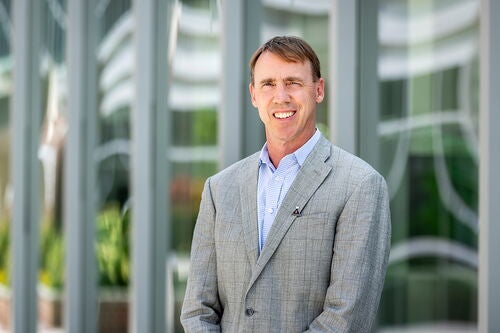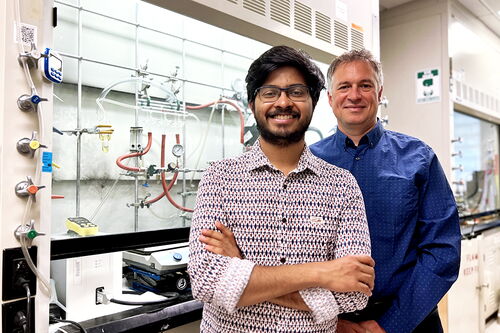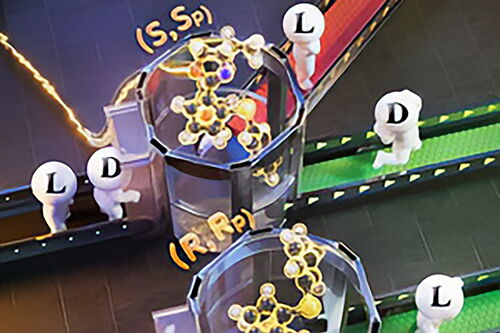Never saying no to science
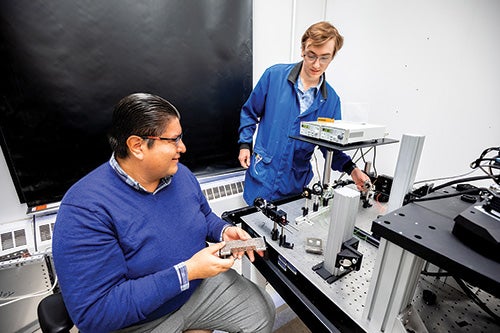
What does science require? Growing up, Joaquín Rodríguez-López had questions that made all his family members scramble for a book. “Why,” he’d ask, for example, “does the moon stay up there?”
Finally when he was about 10 years old his parents got him a chemistry set. You can see what that started—Rodríguez-López is now a professor of chemistry at Illinois. In 2024 he was named a University Scholar for his groundbreaking work in electrochemistry and the many ways it can be used and understood to build better batteries.
“There were times in my childhood where we were living in places that were very removed from scientific discovery, and even in need of the many answers that science elucidates for improving the environment,” Rodríguez-López said. “But my parents would say, ‘This might not be the best place overall, but we’re going to give you the best education.’ They never said no to the science I was interested in pursuing.”
It became a theme that Rodríguez-López lives by. Rodríguez-López earned his bachelor’s degree in chemistry in 2005 at Tecnológico de Monterrey in Campus Monterrey, Mexico, learning electrochemistry under Professor Marcelo Videa, before earning his PhD at the University of Texas at Austin under Allen J. Bard, a chemistry professor and co-author of “Electrochemical Methods,” who’d encouraged him to apply to the graduate program. Rodríguez-López later completed post-doctoral work at Cornell University before coming to Illinois in 2012.
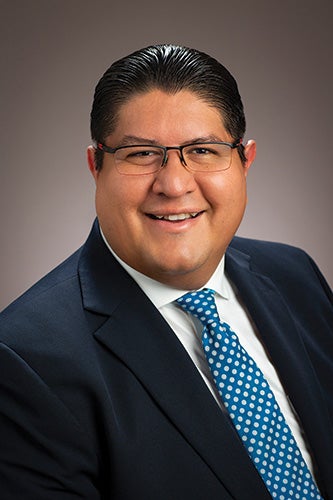
He’s received 20 distinctions, fellowships, and awards, including an Alfred P. Sloan Research Fellowship, the Arthur F. Findeis Award from the American Chemical Society, Division of Analytical Chemistry, and the Zhaowu Tian Prize for Energy Electrochemistry. He has published over 150 papers and book chapters and has delivered over 150 invited talks at major conferences and universities around the world.
His electrochemistry research has roots in battery experiments he did as a kid, as he became a junior leader within the Joint Center for Energy Storage Research, a $200 million initiative of the Department of Energy. Rodríguez-López describes his research as tackling analytical and materials challenges in electrochemical science to better understand electrified interfaces and the design of energy technology.
Rodríguez-López cares deeply about sharing what he’s learned; he’s appeared numerous times on the List of Teachers Ranked as Excellent by Their Students, and in 2023 he received the School of Chemical Sciences Teaching Award. In addition to his work in the classroom, Rodríguez-López has mentored dozens of graduate students, postdocs, and undergraduates in his research lab. In his lab, these students, even undergraduates, have found opportunities to publish work at the forefront of science.
Rodríguez-López also created “The Electrochemistry Bootcamp,” a three-day laboratory and classroom experience for young scientists all over the world.
Indeed, to Rodríguez-López, science thrives within collaborations, whether the partners are faculty members—outside of the Department of Chemistry he’s also affiliated with the Materials Research Lab and the Beckman Institute—or students. His research group now includes more than 20 graduate students, postdocs, and undergraduates, which is large for a campus lab, but it
suits Rodríguez-López just fine.
“I’m a people person,” he said. “That’s why I have a large group, because I like talking to students and I like discussing the ideas. And I like to come out with new ideas.”
Seth Putnam is a fourth year graduate student working with Rodríguez-López. He quickly decided that he wanted to work with the professor after arriving on campus in 2021. Putnam was interested in the professor’s work in electrochemistry and spectroscopy, but he was also attracted by what he described as Rodríguez-López’s laid back management style and teaching methods.
Others shared his desire to work with Rodríguez-López. Putnam has seen the lab group grow as large as 27 graduate students, postdocs, and undergraduates, all working in some capacity for the likeable professor.
“You have to get results (working for Rodríguez-López), but he tends to take a very ‘results over time’ kind of approach,” Putnam said. “The group covers a lot of different areas because we’re so big. If you’re interested in learning something, there’s usually someone in the lab you can go learn something new from, and maybe push your project that way.”
It’s a collaborative approach to science, with always an eye on the future. Rodríguez-López is often seen on campus with his daughter, Citlali, a fifth-grader. He’s been taking her to the lab and chemistry conferences around the world since she was born.
“When she was year and a half, sometimes we’d bring her to a group meeting,” Rodríguez-López recalled,
with a grin. “She would be there on her stroller looking at the presentation, and if the presentation was bad, she started blowing raspberries. If it was good, she wouldn’t say anything.”
Today her artwork stands on prominent display in his office, and it feels entirely natural even next to all the files
and equipment and textbooks. To Rodríguez-López, after all, science begins early, for anyone who wants to start asking questions.
Editor's note: This story originally appeared in the Spring 2025 issue of The Quadrangle.






